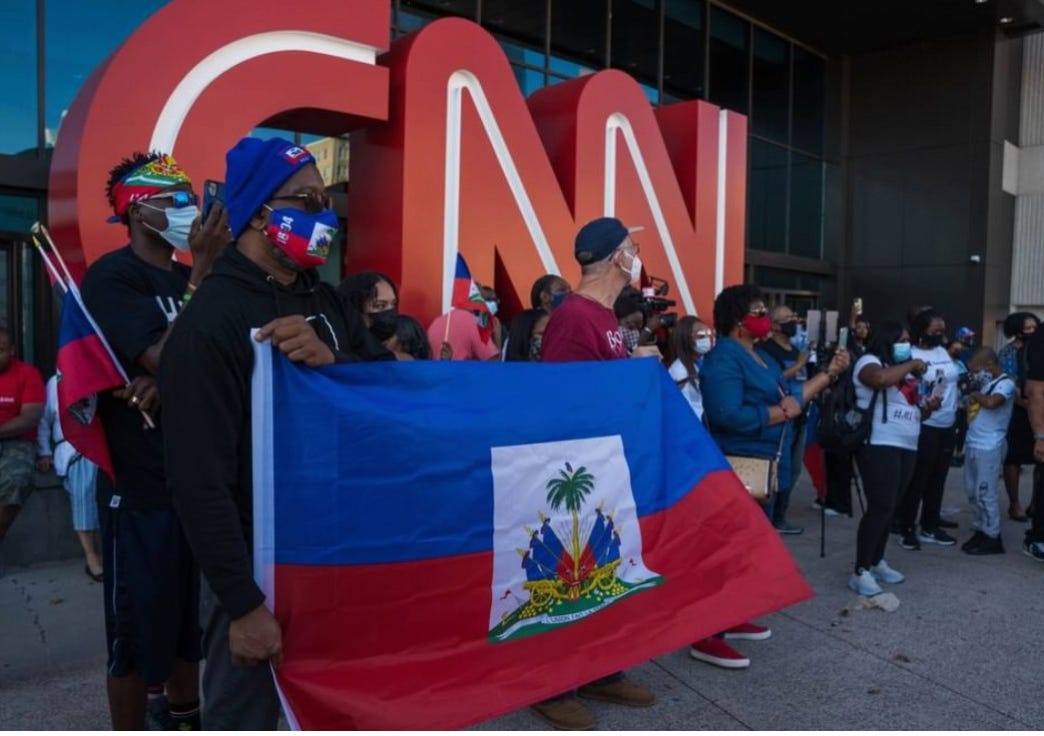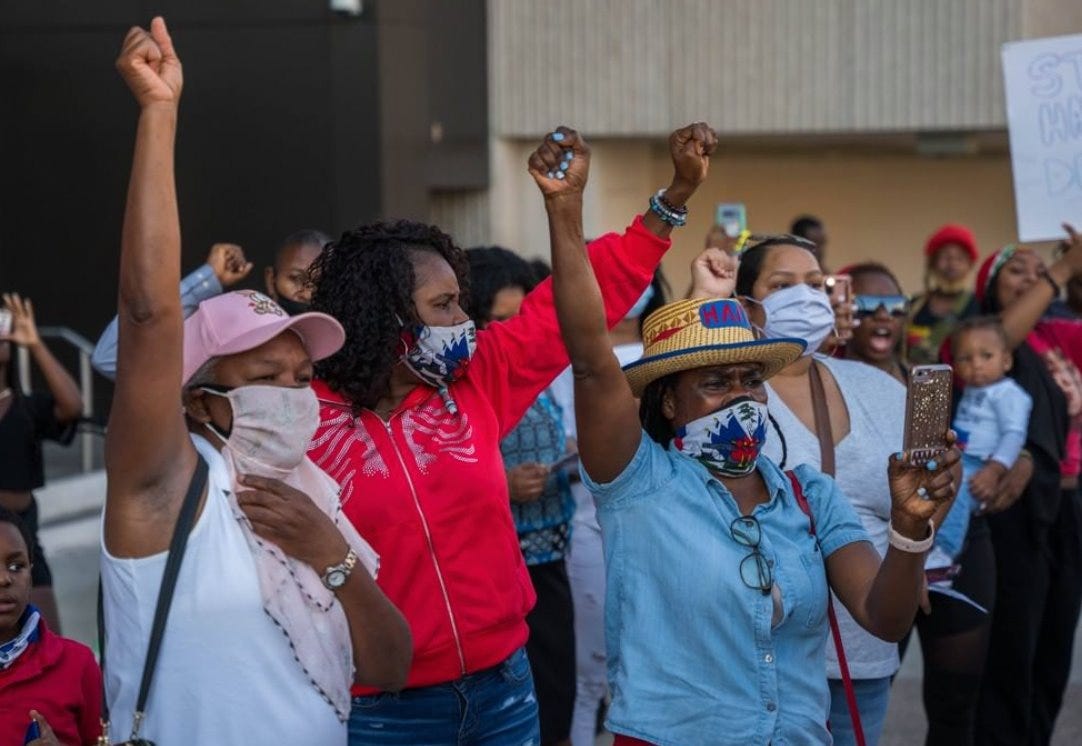Haitians in Atlanta organize, rally and respond to events in Texas
“Haitians are just looking for a better life. Just like migrants from Afghanistan. Why are they treated so differently? Why the double standard?”
Every evening for the last six days, Watson Escarment has been joining a conference call with a dozen other Haitians from Atlanta to get an update from Del Rio in Texas. Some members of his community have travelled there to try to help the thousands of Haitians who crossed the border in recent weeks.
“Right now there are several needs: The legal aspect is primary, and then it’s things like clothes. Once they were removed from the bridge area, many people were taken to shelters. Haitian churches in Texas have been providing clothing and we stay in touch with them,” said Escarment.
Ever since news hit of the more than 10,000 Haitians camped out under the Del Rio bridge, and pictures flashed around the world of Border Patrol officers on horseback pushing Haitians back into a river, Haitians in Atlanta have been trying to help out on multiple levels. They’ve helped send immigration attorneys to Texas and delivered much needed supplies. That effort has intensified as the U.S. continues to deport thousands back to Haiti.
Metro Atlanta is home to over 26,000 Haitians. Many of them live around Lawrenceville and parts of Cobb County - but outside of Haitian churches, there’s little in the way of central community centers or gathering spaces.
Escarment is the Director of Administration and Operations at one of those churches - the Good Samaritan Haitian Alliance Church in Lawrenceville. When it opened its doors in 1994, it counted just 17 members. Now it has a congregation of around 800.
Escarment says the events in Texas have provoked strong reactions in his church’s community. “Many are heartbroken, saddened, and embarrassed even...there have been so many things. The assassination of the President, the earthquake, the hurricane, there’s rampant insecurity. And now the situation in Texas is just another cut, another wound, in the world of the people of Haiti.”
A lot of those emotions came out on Sunday, when Haitians and allies gathered outside the CNN Center for a Haiti Solidarity Rally organized by the Alliance for Black Lives.

“Haitians are running for their lives for the exact same reason Afghans are running for their lives - fear of persecution, insecurity, and collapsed government….Haitians are just looking for a better life. Just like migrants from Afghanistan. Why are those Haitians treated so harshly? Why are they treated so differently? Why the double standard?” said Wadner Normil, a lecturer at Clayton State University, to a crowd of over 100 people.
Normil made a direct appeal to elected officials, “We are here today to ask the Biden Administration to stop deportation and to give an opportunity to Haitians just like he did for the Afghans.” And to Senator Jon Ossoff, “The Haitian community who helped you to get elected needs your help. We voted for you because we know your policies on immigration issues.”
Sheikh Rahman, a state Senator representing immigrant dense Atlanta suburbs including Lawrenceville, also pledged to hold those in higher offices accountable, “I’m an immigrant, I stand with immigrants, and I understand what you’re going through,” he told the crowd. “What we saw at the border didn’t look good, this isn’t the country we represent...I will do whatever I can in my power...I’m with you all.”
In the meantime, Atlanta’s Haitians are doing what they can to help. Escarment arrived from Lawrenceville to Texas on Tuesday to support relief efforts on the ground. He hopes that next time this happens, his community can be better prepared to help those coming to the U.S. for safety.
“Why are people coming? Why have they left Haiti, and made this treacherous migration to U.S. soil? When people are experiencing persecution - you will have migration. It’s born out of the human instinct of survival and self preservation. The migration is symptomatic of issues that have plagued the country for many, many years. It’s not a flicker...and unless we address the root causes of it...these things will continue to happen.”



